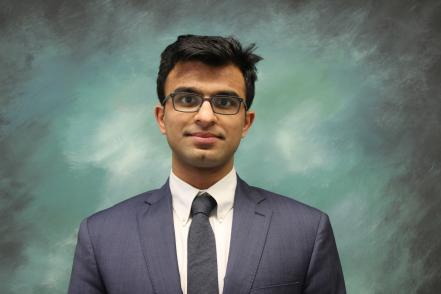The Week That Was: All of Lawfare in One Post
Susan Hennessey and Benjamin Wittes shared the fourth episode of The Report, Lawfare’s podcast series telling the story contained in Robert Mueller’s 448-page report. The series is available on all major podcast distribution services:
Published by The Lawfare Institute
in Cooperation With

Susan Hennessey and Benjamin Wittes shared the fourth episode of The Report, Lawfare’s podcast series telling the story contained in Robert Mueller’s 448-page report. The series is available on all major podcast distribution services:
Following last weekend’s shooting in El Paso, Texas, Quinta Jurecic compiled a primer on right-wing extremism, domestic terrorism and de-platforming, including links to Lawfare’s previous coverage on the subjects.
Jurecic and Benjamin Wittes argued that the white supremacist violence of recent years has affirmed their theory that the radicalization processes for violent Trumpism are akin to that of jihadist terrorism.
Joshua A. Geltzer, Karen Kornbluh and Nicholas Rasmussen argued that technology companies must work to thwart violent white supremacist activity.
Bobby Chesney examined in detail the claim that the federal government has no domestic terrorism crime on the books and asked whether Congress should create one.
Daniel Byman offered recommendations for creating a terrorism designation process useful to technology companies.
Bobby Chesney and Steve Vladeck shared the most recent episode of the National Security Law Podcast, in which they discuss domestic terrorism as a legal and political category, a pending cert petition before the Supreme Court in DHS v. Thuraissigiam and more:
Jen Patja Howell shared the most recent edition of Rational Security, in which Tamara Coffman Wittes, Shane Harris, Susan Hennessey and Benjamin Wittes discuss the renewed discussion and debate over domestic terrorism, the U.S-China trade war and the U.S.’s pivotal moment in Syria:
Kiriloi M. Ingram argued that governments and civil society groups need to do a better job of recognizing the role of women in supporting extremism while also empowering them to help counter violent extremism.
Following the annual Transatlantic Dialogues on International Law and Armed Conflict, Shane Reeves argued that the law of armed conflict must evolve or risk becoming detached from modern military operations.
Geoffrey S. Corn and Rachel E. VanLandingham caution that, while greater awareness of civilian casualties is generally a normative good, such accounting must be accompanied by strong contextual checks and balances.
Vishnu Kannan shared the House Judiciary Committee’s civil complaint filed in the U.S. District Court for the District of Columbia to enforce the committee’s subpoena against former White House counsel Don McGahn.
He also shared the Department of Justice’s amicus brief in Trump v. Mazars.
Jen Patja Howell shared the most recent episode of the Lawfare Podcast, in which Margaret Taylor spoke with Mark Rozell about executive privilege, what is new in the Trump administration's handling of congressional demands for information, and what it all means for the separation of powers:
Quinta Jurecic shared former Special Agent Peter Strzok’s complaint in the U.S. District Court for the District of Columbia over his dismissal from the FBI and the release of his text messages with then-FBI employee Lisa Page.
On Thursday, Vishnu Kannan shared former FBI Deputy Director Andrew McCabe’s suit against the attorney general and FBI director over McCabe’s demotion and dismissal from the bureau.
Todd Carney wrote that the president’s decision not to impose a quota on uranium imports illustrates the White House’s power over trade policy.
Paul Rosenzweig noted some preliminary observations on the utility of measuring cybersecurity.
Alden Fletcher explored how a country could use disinformation to affect scientific research.
Peter deLacy provided a guide to teaching covert action legal analysis to law students.
And Jen Patja Howell shared an episode of the Lawfare Podcast in which Jack Goldsmith spoke with Mary Ann Glendon about the recently announced Commission on Unalienable Rights, of which Glendon is the chair:
And that was the week that was.

